11 of the Best Workato Competitors
Right now, we’re in a golden era of automation. It’s never been easier to lighten your workload by automating tasks and connecting different apps. In just a few clicks, you can integrate, automate, and optimize powerful workflows to help your business run more smoothly. And when it comes to this type of thing, Workato is a big name — but certainly not the only one. There are plenty of other integration solutions out there that can do similar things, and some might even be a better fit for your needs. Whether you’re a small business owner or part of a bigger company, understanding these options can help you make the choice that’s best for you.
Here are some of the best Workato competitors and how they stack up.
Unito: Best overall Workato competitor

Unito is a top choice for those seeking a deep, continuous level of integration and automation between the tools their teams depend on every day. It allows you to create real-time, two-way connections between the tools you use every day, eliminating the need for creating lots of different recipes. Even with its plethora of features, Unito is easy to use and ideal for non-technical users, empowering you to quickly and independently set up your workflows. And if you ever need a bit of help to get your integrations working just right, Unito’s customer support is one of the best in the business.

Here’s a breakdown showing why Unito is one of the best Workato alternatives on the market:
- True 2-way sync: Workato is a robust automation platform, and with the right technical expertise, you can make it automate even complex workflows. But it can’t imitate Unito’s true 2-way sync, which creates two-way relationships between tools and work items, automatically updating everything as you work. Setting this up takes a fraction of the time in Unito than it would to simulate similar functionality in Workato and other Workato alternatives.
- Less maintenance: Most Workato alternatives require significant setup to work properly, especially if you’re trying to automate complex workflows. But the initial setup is only part of it. When these automations break, you’ll need to dive in to troubleshoot and get things working again. Because Unito’s flows are simpler to set up, you won’t have to continually maintain them.
- Automated field mappings: Unito’s field mappings automatically translate data between tools, so it always ends up in the right place. In many tools, setting up these mappings can take a significant amount of time. With Unito, not only are mappings much simpler to set up, but most of the time they’re set up for you automatically.
- Robust rules: Unito’s rules give users complete control over what work items get synced between tools, where these items end up, and what happens when they’re automatically created in each tool. These rules also allow you to choose between syncing historical data or only syncing new data.
- Deeper integrations: Many Workato alternatives only support a few fields and simple actions. Sure, you can put them together to support more complex actions, but that takes significant work. Unito’s simpler flows are also much deeper than your average Workato competitor. You get more from each integration for less work.
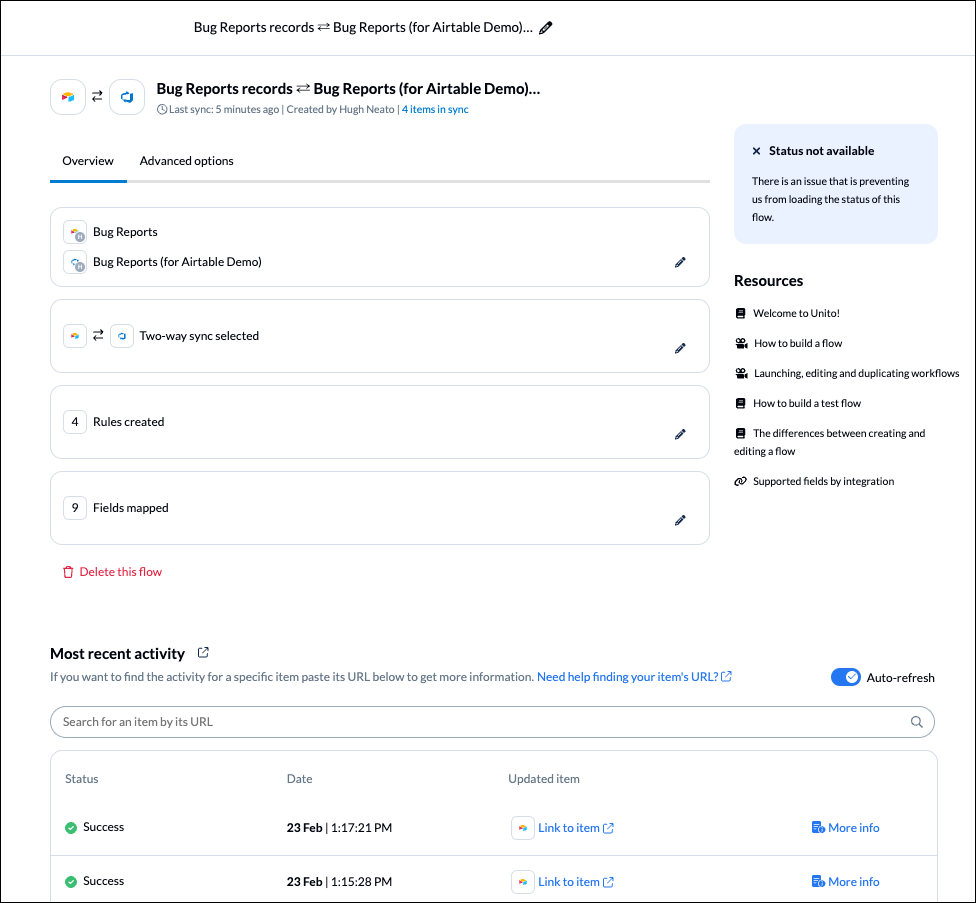
Biggest advantages
- Unito has a simple, quick setup that stands apart from the vast majority of Workato alternatives. Most Unito users come from non-technical backgrounds and set up their first flow in 12 minutes or less.
- Unito’s integrations have the depth and capabilities of enterprise-grade integrations (including enterprise-grade security features) without the associated deployment times.
- Unito’s integration supports tools across your stack, from spreadsheets to project management tools. Whether you need to bring sales and development teams together or optimize your reporting, Unito has an integration for you.
Want to see how Unito compares to Workato and its alternatives? Here are our full breakdowns:
Biggest drawback
With 40+ integrations, Unito doesn’t have as many as some other options on this list, including Workato itself. While that library is constantly growing, it means that you might not find the integration you need right away.
Customer rating
Zapier: Best Workato competitor for simplicity
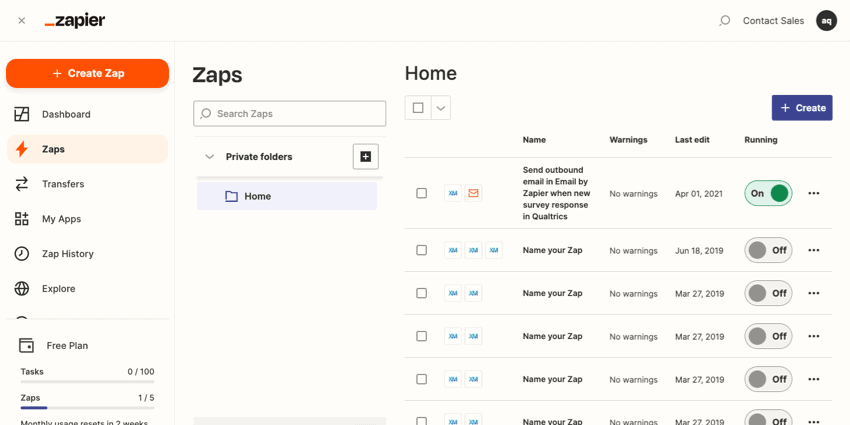
Zapier is one of the most well-known Workato competitors, and for good reason. It’s prized for its straightforward interface and features, designed to be both easy to set up and easy to use. But while Zapier may be viewed as more simplistic than Workato, that doesn’t mean it’s any less of a strong contender for automating your processes. In fact, it boasts more integrations than many platforms on the market, meaning that you can create an impressive range of Zaps — Zapier’s equivalent to Workato’s “recipes” — across your favorite tools. Like Workato, Zapier also offers AI-driven features to supercharge your automation process. With Zapier, your ability to automate and integrate is near limitless.
Biggest drawbacks
Zapier is a bit behind Workato when it comes to data-related capabilities. For instance, Workato allows you to use data that existed before your automation goes live — which Zapier doesn’t. It can also move larger amounts of data than Zapier can.
Pricing
Zapier has a more affordable price tag than Workato, and even offers a “free forever” plan with its core features, single-step Zaps, and a limited number of tasks. The other plans start at a reasonable $19.99 per month, with the most expensive off-the-shelf plan ringing in at only $69 per month.
Customer rating
G2: 4.5/5
Capterra: 4.7/5
Jitterbit: Best enterprise-ready Workato competitor
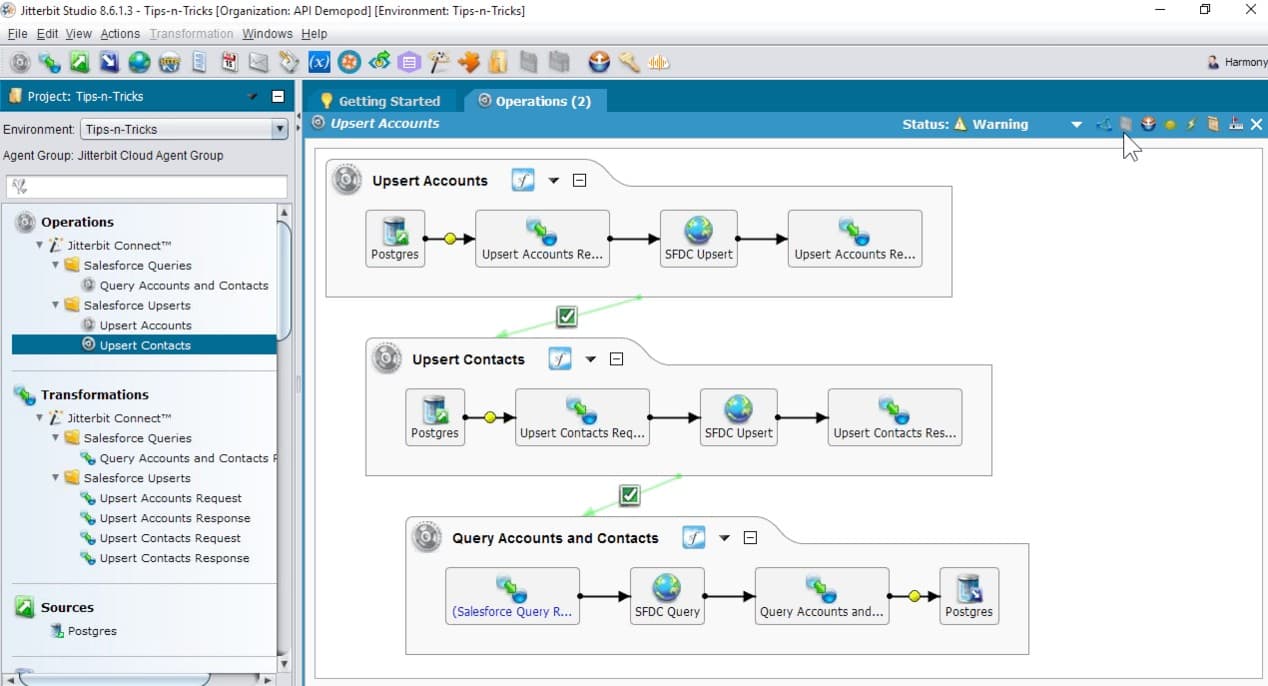
If you’re looking at creating complex integrations, then Jitterbit is a Workato competitor that you’ll want to keep an eye on. Its Harmony iPaaS platform is designed to automate business workflows across a number of different business-critical domains, including customer experience, HR management, IT service management, and more. Jitterbit provides users with a low-code, interface-driven platform for integrating, automating, and even creating new applications. For business users, this is a strong Workato alternative to keep in mind.
Biggest drawbacks
While Jitterbit does offer pre-built connectors for enterprise apps and a marketplace of pre-made recipes, they’re less robust than what you would get with Workato. Additionally, reviewers noted that the platform is more difficult to train on and slower to reach ROI than Workato.
Pricing
Enterprise-level software like Jitterbit tends to come with an enterprise-level price tag. While Jitterbit does not display its pricing on its website, reviews note that the starting price is $1,000 per month. However, you are able to request a trial of the software before committing to anything.
Customer rating
G2: 4.6
Capterra: 4.4/5
SnapLogic: Best Workato competitor for data integration
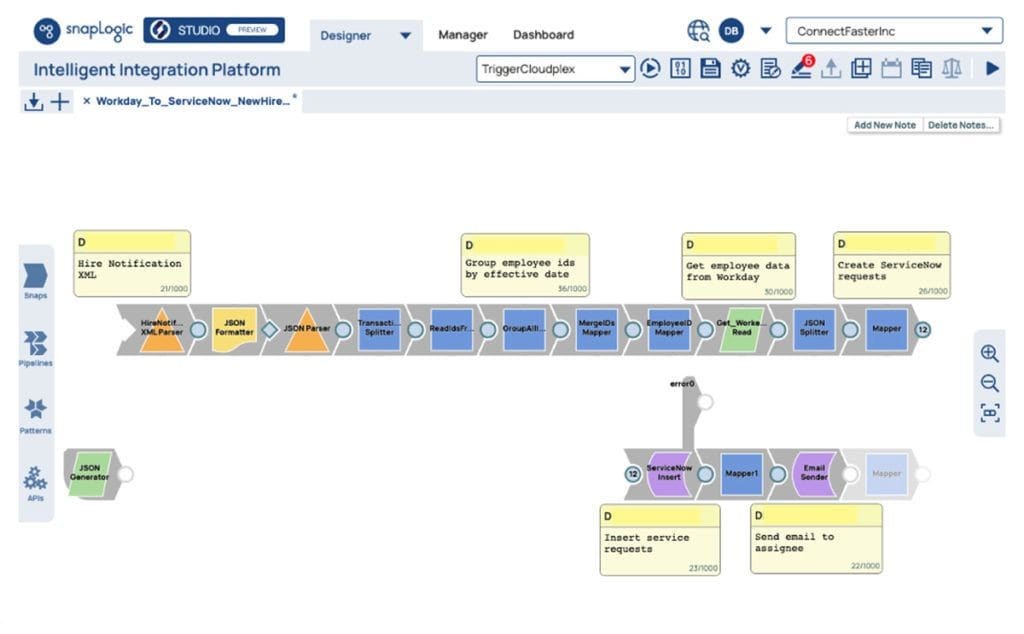
SnapLogic is another Workato competitor designed for integrating data and automating workflows across enterprises. It distinguishes itself from other platforms by its robust data integration capabilities and exceptional data processing power. On SnapLogic’s website, they note that their platform often has 70x higher data throughput than Workato.
SnapLogic offers over 700 recipes — called “Snaps” — that help to simplify the creation of both straightforward workflows and intricate business processes among diverse work teams. Additionally, akin to Workato, SnapLogic offers AI-powered features to simplify the integration and automation process.
Biggest drawbacks
Reviews note that SnapLogic is trickier to use than Workato, making it more difficult to implement and train on. So, if you’re looking for something to get your automations up and running quickly, SnapLogic might not be the best choice. It is also priced for larger organizations, which could be restrictive for growing businesses.
Pricing
SnapLogic does not readily display its pricing on its website, but it did release a blog article explaining its pricing strategy. That article notes that while certain Snaps are free of charge and considered part of their “core system,” you do have to pay for premium Snaps. These Snap Packs range from $15,000 to $45,000. SnapLogic also uses variable pricing for API processing, meaning that if you wish to exceed the 10,000 API calls offered in their base pricing, then additional processing will cost you $10,000.
Customer rating
G2: 4.3/5
Capterra: 4.5/5
Make: Best Workato competitor for collaboration

Make prides itself on providing value to businesses of all sizes, whether you’re a one-person show or a larger corporation. Instead of the traditional linear approach to workflows, Make has thoughtfully aligned its features to more intuitively match how events unfold in real life. The platform is built on the premise of cross-team, interdepartmental collaboration, empowering you to solve problems and streamline processes across your entire organization. Its drag-and-drop interface makes automation easy for less tech-savvy users, although further workflow customization options are available for those with more computer skills.
Biggest drawbacks
Overall, users note that Make does have more of a learning curve than Workato, ranking the latter higher for ease of use, setup, and maintenance. That being said, users also felt that Make meets the needs of their business better — meaning it might just be worth the extra time it takes to get the hang of things.
Pricing
Like Zapier, Make offers a free plan that allows you to carry out 1,000 operations per month—perfect for individuals to test out. Paid plans are also very reasonably priced, with team plans starting at only $29 a month for 10,000 operations.
Customer rating
G2: 4.7/5
Capterra: 4.8/5
Tray.io: Best Workato competitor for user experience
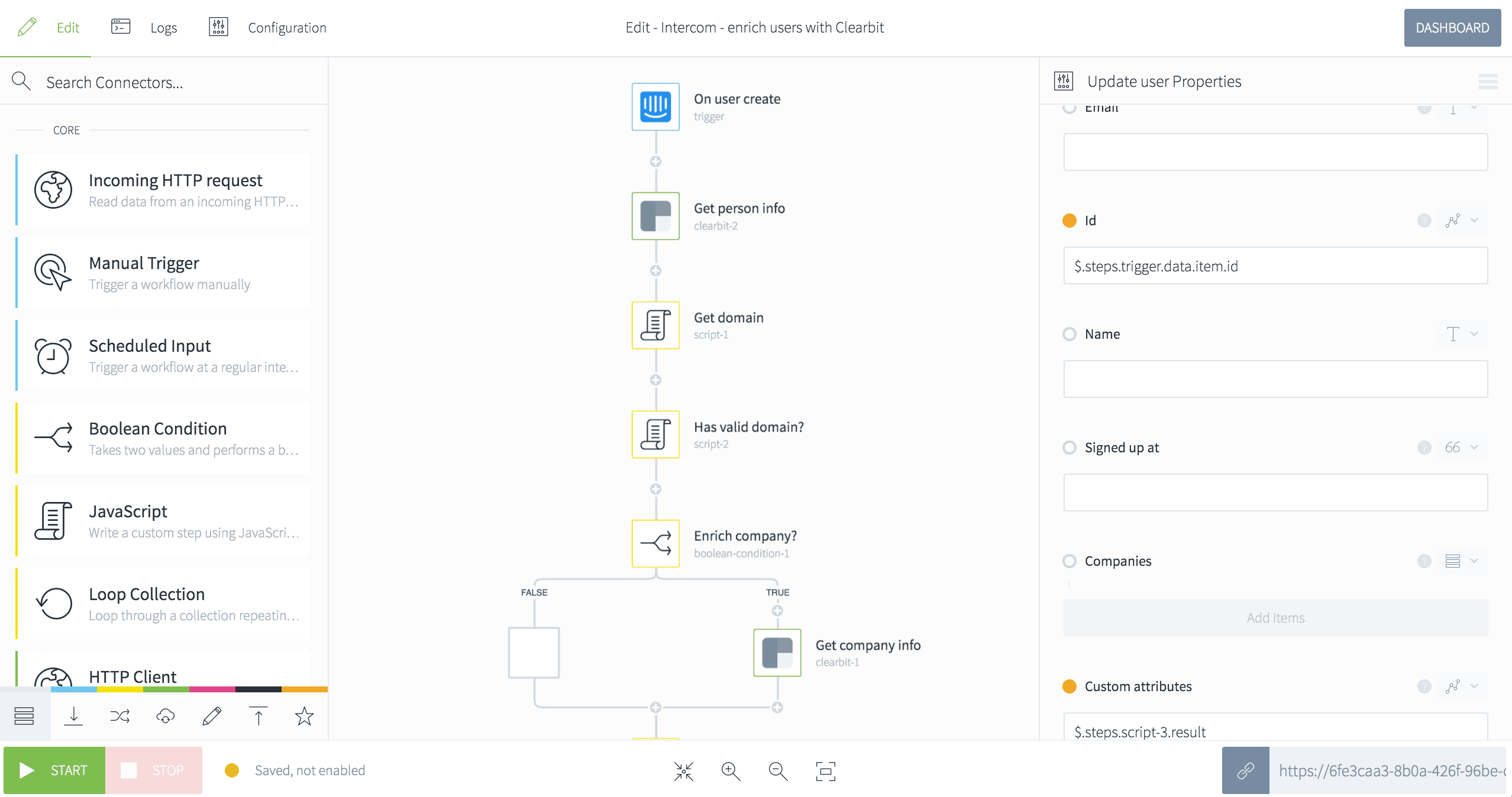
Tray.io endeavours to bring a simplistic approach to automations that require sophisticated business logic. Its industry-leading UX design offers a low-code solution for businesses looking to automate processes without sacrificing scalability. In addition to an API-powered drag-and-drop editor, Tray.io‘s automation platform also offers step-by-step debugging and real-time analytics to ensure that you can solve problems quickly, independently, and at scale. Overall, it’s a great bet for larger companies that want to create harmony between their various cloud-based applications.
Biggest Drawbacks
While its interface is easy to use, setting up workflows in Tray.io can still be tricky for those who don’t have a deeper understanding of automation and the systems at play. Additionally, some have noted points of friction when attempting to collaborate across different accounts within the platform.
Pricing
Tray.io does not readily display its pricing on its website. However, certain sites indicate that the platform is priced for larger businesses, with plans ranging from $595 to $2,450 per month. To confirm which plan meets your needs and how much it will cost, you have to directly contact their sales team. That being said, you are able to carry out a free trial of Tray.io before needing to fork over any cash.
Customer rating
G2: 4.5
Capterra: 4.9/5
Boomi: Best Workato competitor for security
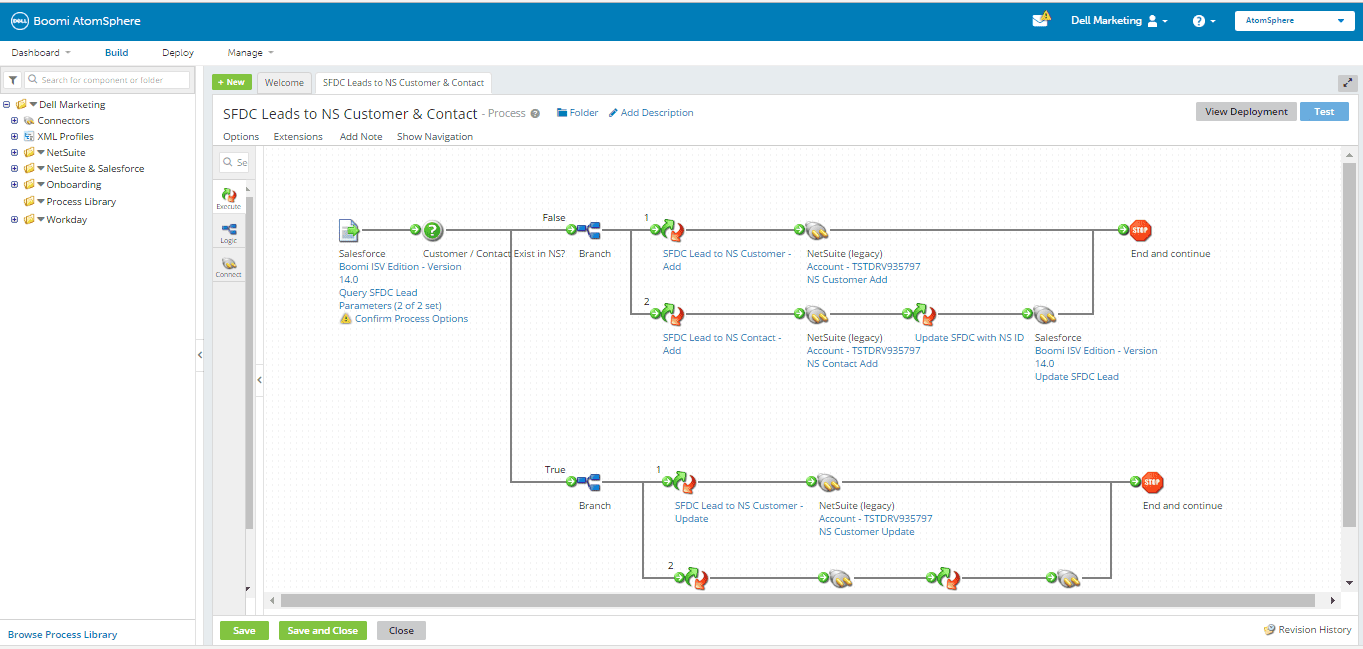
Another enterprise-level solution for automating business operations, Boomi takes data integrity and security very seriously. Their platform empowers users to exercise data sovereignty through on-premises runtimes, meaning that you maintain more control of your data. They have a SecurityScorecard rating of “A” (compared to Workato’s “C”) and are also compliant with a number of different standards, including SOC1, SOC2, FedRAMP, ISO 27001, ISO 27701, IRAP, HIPAA, and PCI. Boomi provides intelligent integration and automation across tools while also giving you peace of mind about the security of your data.
Biggest drawbacks
Users have noted that Workato is easier to use than Boomi, with an interface that’s much simpler to navigate. Some struggle with the complexity of Boom’s scenarios, feeling that it takes longer to understand how different data and variables can be leveraged within an integration.
Pricing
Boomi offers a 30-day free trial to see if their solution is a good fit for your needs. Otherwise, their pricing isn’t displayed on their website. Some reviews suggest that pricing for their professional plans begins at $2,000 per month, but you should contact their sales team to verify.
Customer rating
G2: 4.4/5
Capterra: 4.4/5
Microsoft Power Automate: Best AI-powered Workato competitor
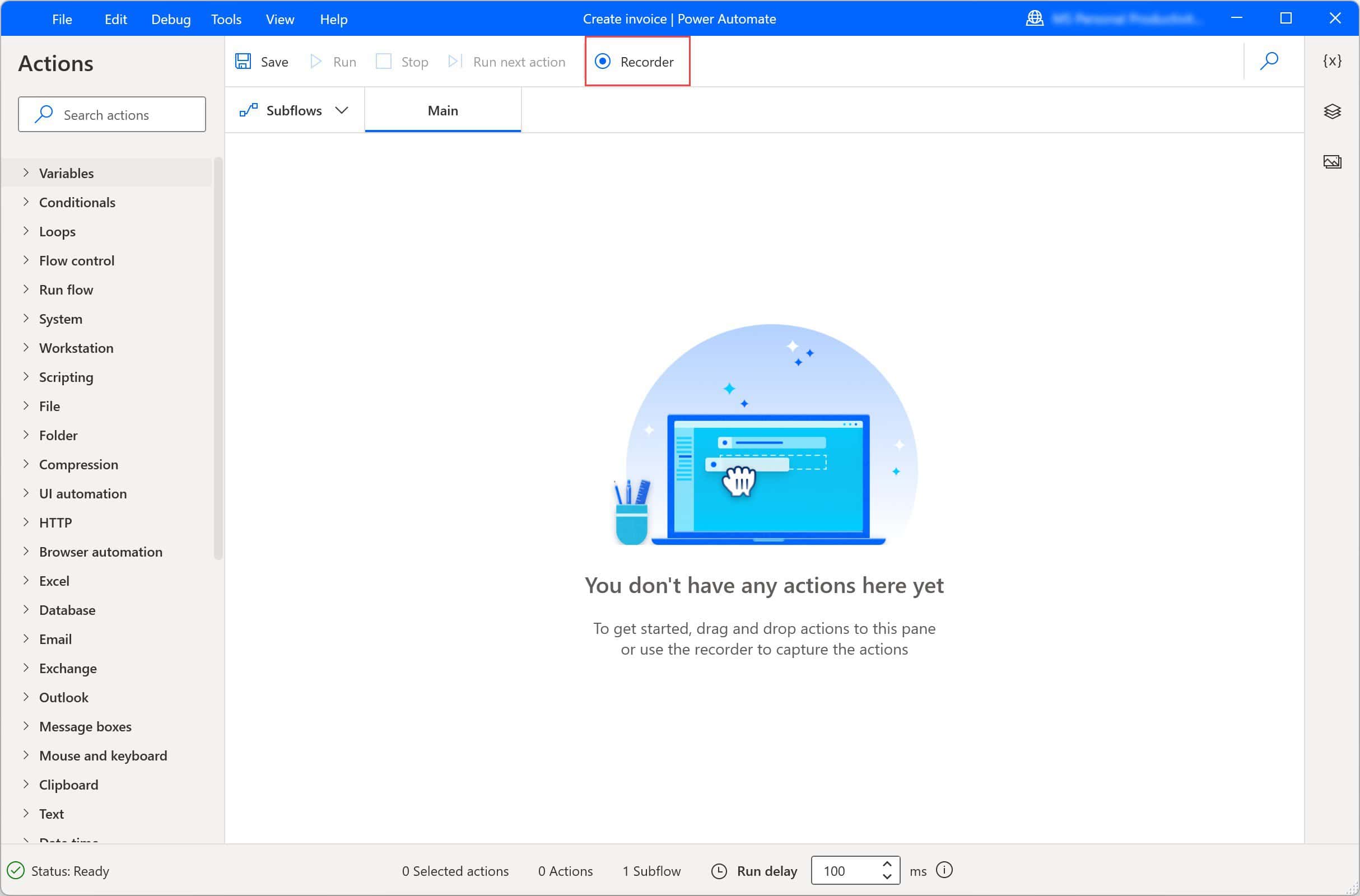
Power Automate is an automation platform created by tech juggernaut Microsoft, featuring a low-code, drag-and-drop builder that allows users to automate their processes quickly and effectively. Power Automate boasts thousands of templates, hundreds of pre-built connectors, and AI-powered assistance. In fact, Power Automate’s AI Builder allows you to embed language models into your workflows to generate text, create summaries, and answer questions.
Biggest drawbacks
When working with a company as big as Microsoft, there’s often a higher chance of support requests falling through the cracks. Generally, users noted that Workato has better ongoing product support than Microsoft Power Automate, and better feature updates. They also found that Workato is easier to use and administer.
Pricing
Microsoft Power Automate is priced per user, so you have ongoing transparency regarding how much you’ll be paying. Depending on how many users you want to add to the platform, it could cost you significantly less—or more—than Workato. It starts at $15 per user each month, but there’s also an option to pay for an automation bot that can be used for unattended desktop automation (costing you $150 per bot each month). Microsoft Power Automate also has a free trial.
Customer rating
G2: 4.5/5
Capterra: 4.4/5
Outfunnel: Best Workato competitor for sales and marketing
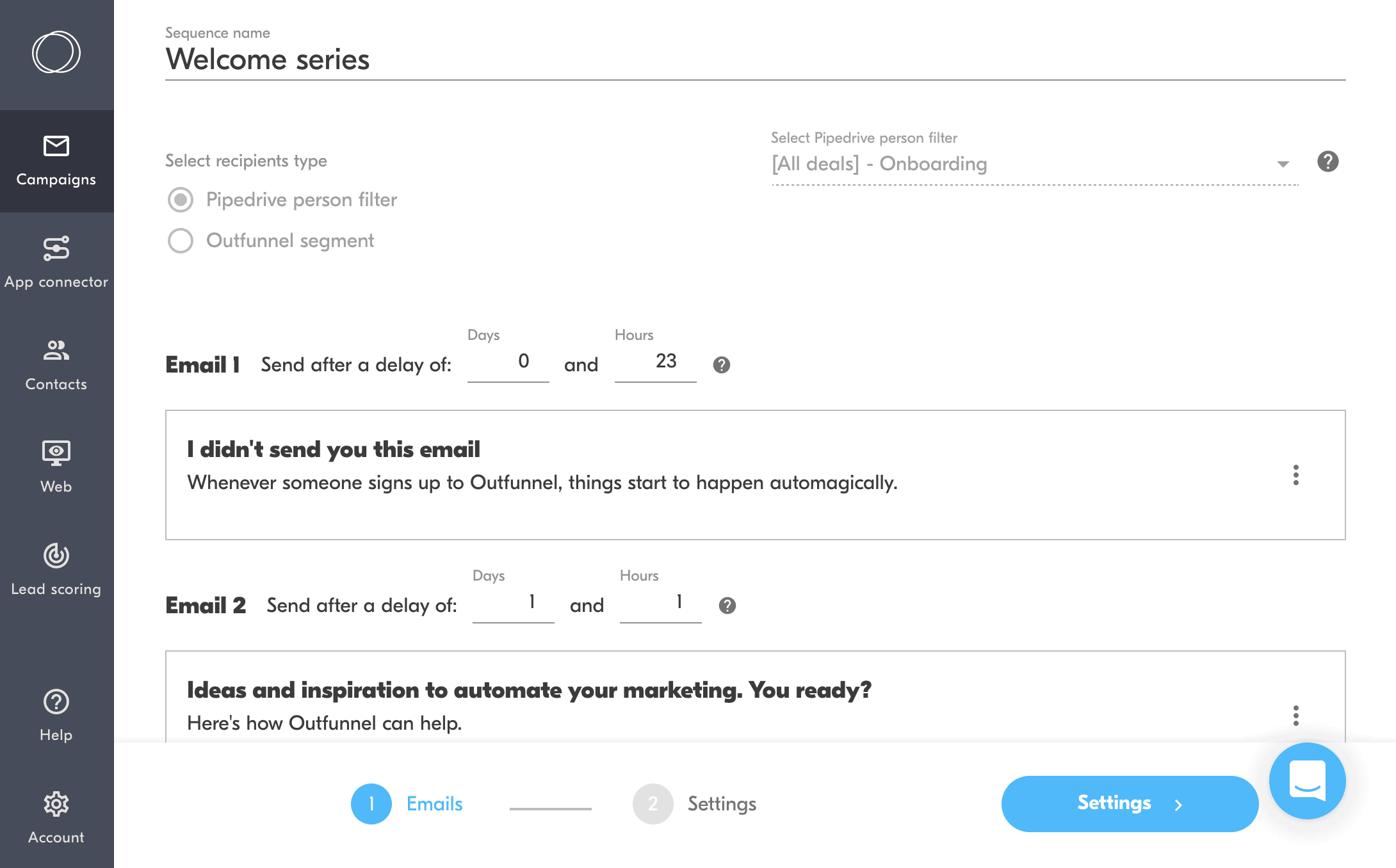
Outfunnel was built specifically to harmonize data and automate processes across sales and marketing platforms. It allows users to fully synchronize Salesforce, Airtable, Pipedrive, Copper, and HubSpot. Outfunnel also lets users connect their CRM to tools like Mailchimp, ActiveCampaign, Facebook Lead Ads, and more. It provides a centralized hub for your sales and marketing data, supporting email analytics, lead scoring, web tracking, and automated email drip campaigns. If you’re a sales or marketing team that wants to get more out of the tools you use every day, Outfunnel is a solid choice.
Biggest drawbacks
Being that Outfunnel is tailored to sales and marketing teams, it has fewer integration options than Workato, meaning it might not be a great fit if you don’t use platforms like Salesforce or HubSpot. However, the level of integration offered for the tools Outfunnel does support is very deep, making for a seamless experience.
Pricing
Outfunnel’s pricing begins at $29 per month for its basic plan, and $119 per month for its professional plan. Both plans have a limited number of active contacts, but you can pay an additional fee each month to add more to your subscription. It also offers a free trial so that you can determine whether the platform will be a good fit for your organization.
Customer rating
G2: 4.4/5
Capterra: 4.9/5
UiPath: Best RPA Workato alternative
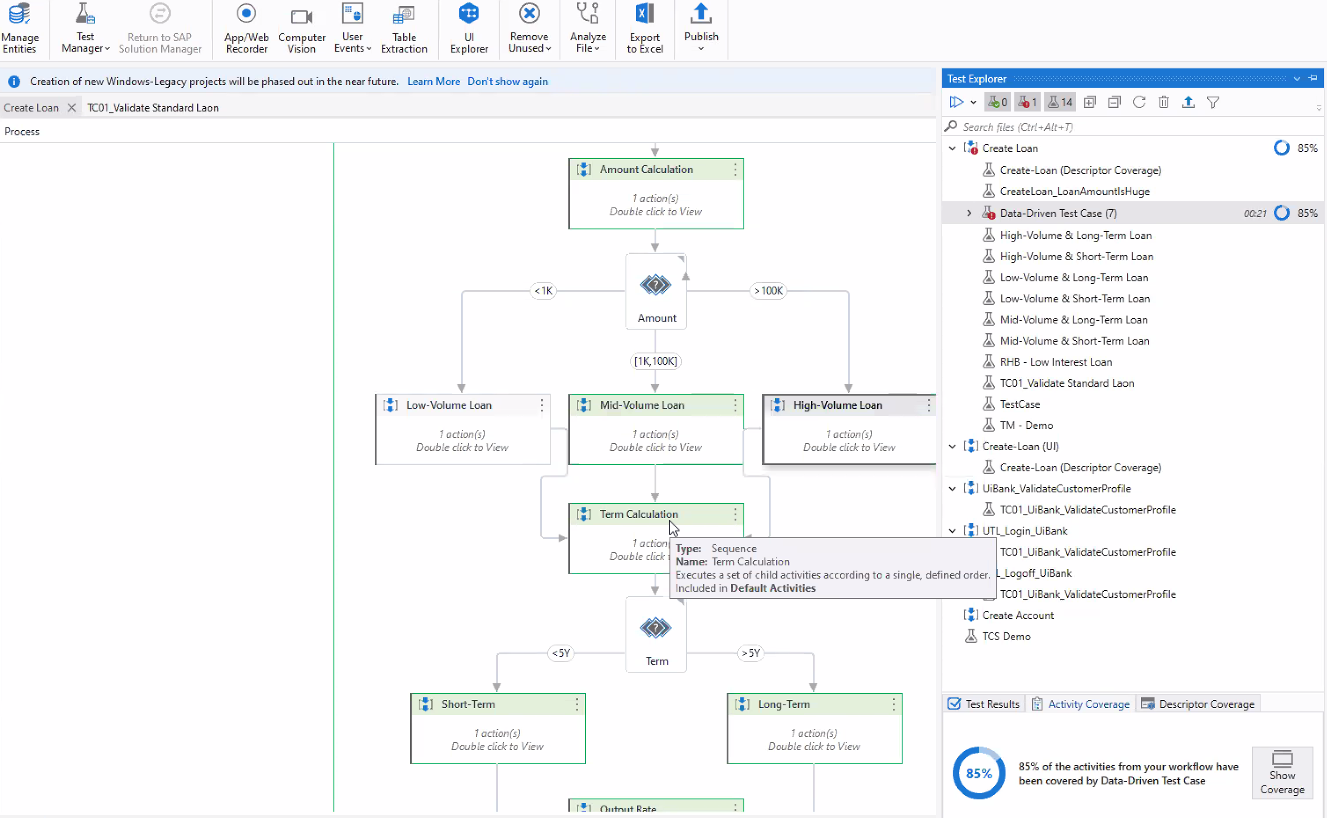
UiPath is one of the top RPA (robotic process automation) tools on the market right now. Unlike other integration platforms, RPA tools allow you to automate complex workflows by simulating human action with AI-powered agents. These agents can essentially do anything a human can, from clicking on specific buttons in a tool to transferring data between platforms.
That means you won’t just be able to integrate tools with customizable APIs. As long as a software tool has an interface, it can be integrated with UiPath.
Biggest drawbacks
While UiPath’s RPA agents are great for integrating tools that don’t play well with other Workato alternatives, they can still be limited when pulling data from some tools. Additionally, if you’ve never used an RPA platform — but are used to other integration solutions — you might be facing a steep learning curve.
Pricing
UiPath offers three plans:
- The Free plan, which allows unlimited individual automations and supports pre-built integrations for the most popular platforms.
- The Pro plan, starting at $420 a month, unlocks advanced automation design tools and additional integrations.
- The Enterprise includes extra automations, more security, and additional features. You’ll need to get in touch with their sales team to get an exact price for this plan.
Customer rating
G2: 4.6/5
Capterra: 4.6/5
Kissflow: Best alternative for low-code integration capabilities
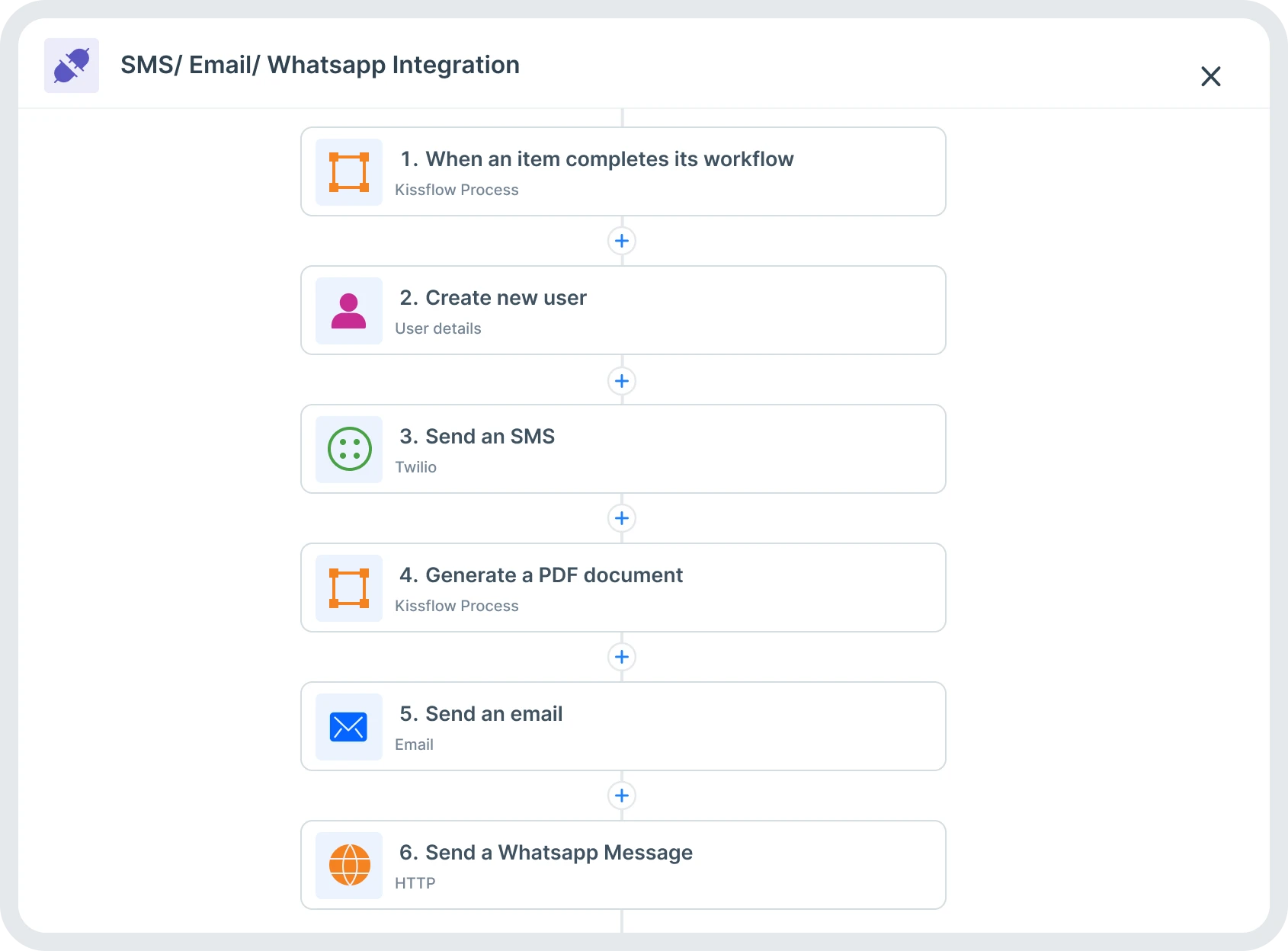
Kissflow’s low-code platform allows users with a bit more technical skill to deploy custom integration processes to automate repetitive tasks. That can put it out of the reach of some teams, but as long as you have the technical skills — or budget — to implement Kissflow workflows, you’ll have a solid Workato alternative. Its visual workflow builder is another great feature for visualizing your work before you start automating anything.
Biggest drawbacks
Kissflow users have noted a few drawbacks beyond the technical expertise required to make it work:
- APIs for pre-built connectors can be limited.
- The notifications system could be more robust.
- Kissflow’s search functions don’t work as well as some other alternatives.
Pricing
Kissflow offers two pricing plans:
- The Basic plan supports simple use cases and 50 internal users for $1,500 a month.
- The Enterprise plan supports more complex uses cases as well as both internal and external users. You’ll have to get in touch with Kissflow’s sales team for an exact quote.
Customer rating
G2: 4.3/5
Capterra: 4.1/5
Final thoughts on Workato competitors
While Workato stands as a formidable player in the automation and integration landscape, the diversity of its competitors speaks to the dynamic nature of this field. Each competitor, from Unito’s deep two-way syncing to Zapier’s user-friendly simplicity, brings unique strengths tailored to different business needs. Whether you’re a small business looking for straightforward automations or a large enterprise in need of complex workflow integration, you’re sure to find something that suits your unique situation.
Ready to try the best Workato competitor?
Book a meeting with our team to see what Unito's integrations can do for your workflows.


